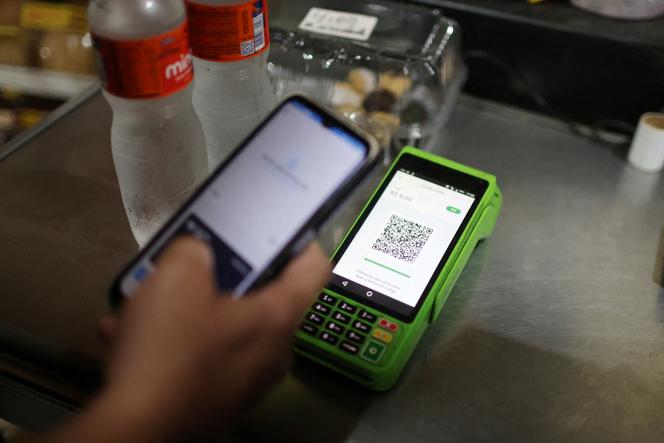


It was 4:30 pm on the legendary Copacabana Beach in Rio de Janeiro. The sun was setting, and Eduardo Resende Gonçalves, an itinerant iced tea vendor, began tallying his sales. "Of the 24 glasses I've sold today, I'd say 80% were paid for using Pix." Pix: three letters that stand for a free and instant bank transaction system, available for any type of payment and integrated into all mobile banking apps.
Launched by the Central Bank of Brazil in November 2020, the mechanism became so popular that it has already overtaken credit card and cash transactions. In April 2025 alone, 2,677 trillion reais (more than €410 billion) in payments were made using Pix. According to Carla Beni, professor of economics at the Fundação Getulio Vargas, this immediate success can be explained in particular by how easy the system is to use: "Transfers carry no extra cost, and the money arrives instantly in the user's account. The cleaning person or electrician who has just finished a job can go shopping right after."
In the country with the second-highest rate of online credit card hacking in the world, Pix is also considered the safest means of payment, according to a study by the Central Bank of Brazil in 2024. "If I get mugged, at worst the assailant will steal my phone. My earnings will be safe in my account," explained Eduardo Resende Gonçalves. Above all, in a country where, according to the latest 2022 census, 42% of the active population made a living from the informal economy, such a method has represented a major step forward for banking inclusion for the poorest citizens.
You have 61.57% of this article left to read. The rest is for subscribers only.
